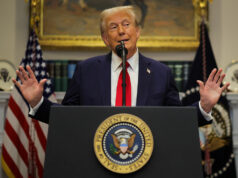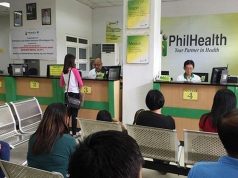Duterte says ties with China to hasten both countries’ recovery
By Kyle Aristophere T. Atienza
STRONGER ties between the Philippines and China would hasten their economic recovery amid a global coronavirus pandemic, President Rodrigo R. Duterte said at the weekend.
“The recovery of nations sits on the back of stronger economies,” the presidential palace said in a statement on Sunday, quoting the President during a meeting with Chinese State Councilor and Minister of Foreign Affairs Wang Yi in Malacañang.
“China plays a key role in reviving our region’s economy. Let us do all we can to revive economic activities between the Philippines and China,” Mr. Duterte said.
The President has sought closer and investment ties with China during his almost five years in office, moving away from the United States, a treaty ally, as part of his “independent foreign policy.”
During the meeting, Mr. Wang said China would donate 500,000 doses of its coronavirus disease 2019 (COVID-19) vaccine to the Philippines. China also approved a P3.72-billion grant for livelihood, infrastructure and other development projects.
Mr. Wang underlined China’s commitment under President Xi Jinping to work closely with the Philippines “to sustain the positive trajectory of the valued and special bilateral relations,” the Palace said.
“Any visit of a political power is good for the country, for stronger ties and cooperation,” Antonio Gabriel M. La Viña, a lawyer and former dean of the Ateneo de Manila University’s School of Government, said by telephone.
Terry L. Ridon, convenor of InfraWatch PH, said the government should clarify whether this constitutes new funding commitments for indicative infrastructure projects or merely a “follow through” of previous commitments.
“If it is the former, it is a tad too late into President Duterte’s term for new funding commitments to come into fruition by next year,” he said in a Facebook Messenger chat. “If it is the latter, why only now?”
Mr. Ridon said the development commitments should not be a “sweetener” for supply deals involving Chinese vaccines. “The development funding should have been released prior to the pandemic, and vaccine supply should be contingent on efficacy, safety and cost,” he said.
Meanwhile, Beijing might be closely monitoring congressional proceedings on constitutional amendments that seek to relax foreign ownership provisions, since that would benefit its state-owned and -controled agro-corporations, a political analyst said.
“We are aware that there are many Chinese investors interested to come in, which started during the administration of President Gloria Macapagal Arroyo,” Maria Ela L. Atienza, a political science professor from the University of the Philippines, said by telephone.
“That can be an additional pressure for a push on revisions and amendments to the Constitution, particularly liberalizing the economic provisions,” she said, adding that lawmakers might seek to allow foreign ownership of land, which is limited to Filipinos now.
“It was clear that the presence of Chinese investors in the country had been considered by the Arroyo administration to pursue constitutional amendments,” Ms. Atienza said.
The Arroyo government signed almost 20 agribusiness agreements with Chinese corporations, with about a million hectares committed for export crop production, she said.
These, however, were frozen by former President Benigo S.C. Aquino III, who thought the deals could only be legitimized if the Philippine restriction on land ownership was lifted.
But Party-list Rep. Alfredo A. Garbin, Jr., who heads the House of Representatives committee on constitutional amendments, told BusinessWorld via Zoom Cloud Meetings at the weekend the panel might decide not to touch the Charter’s provisions on land ownership.



